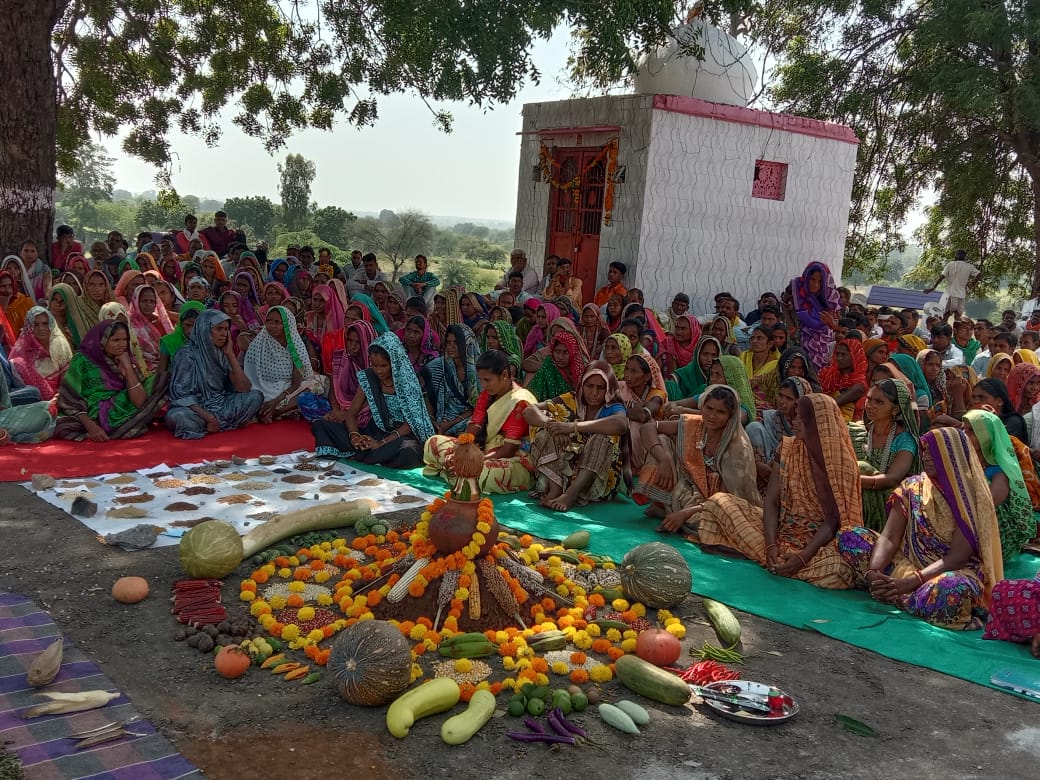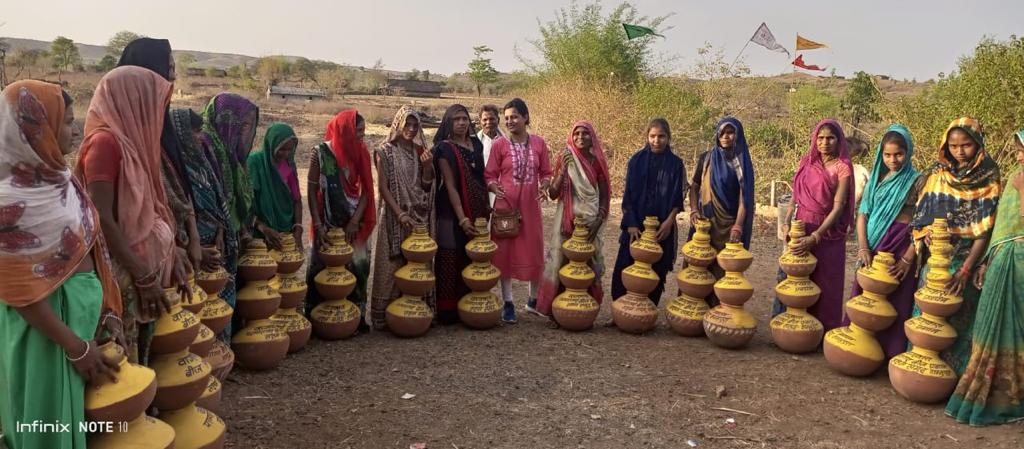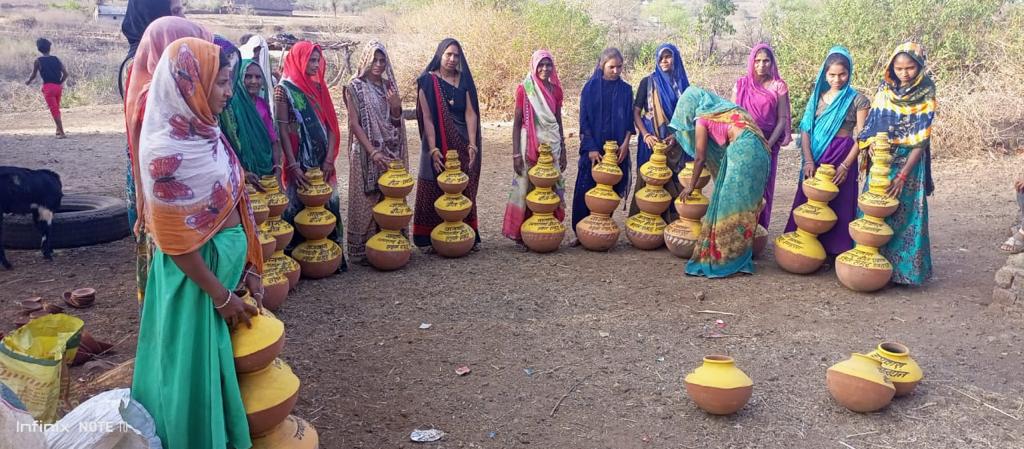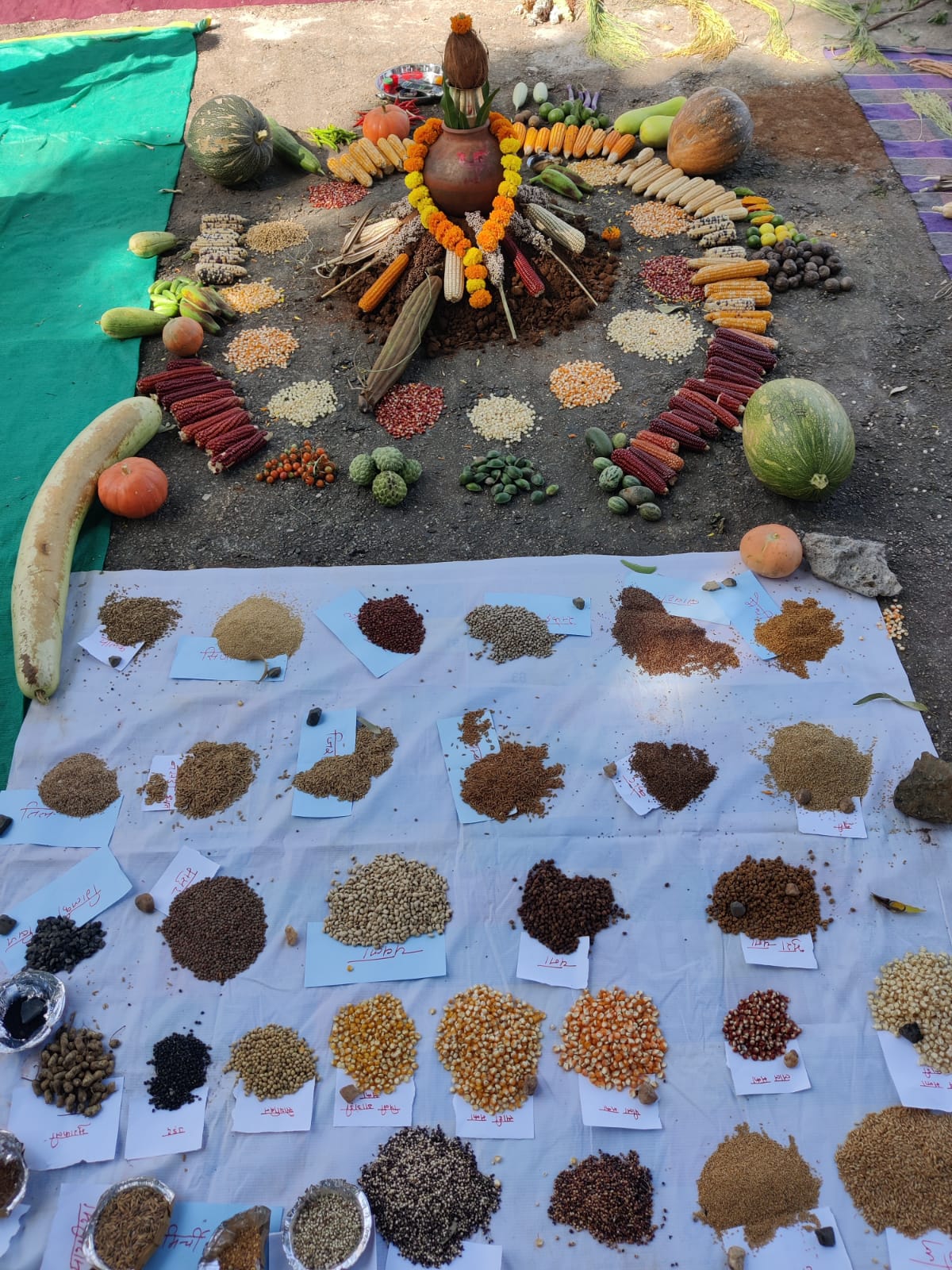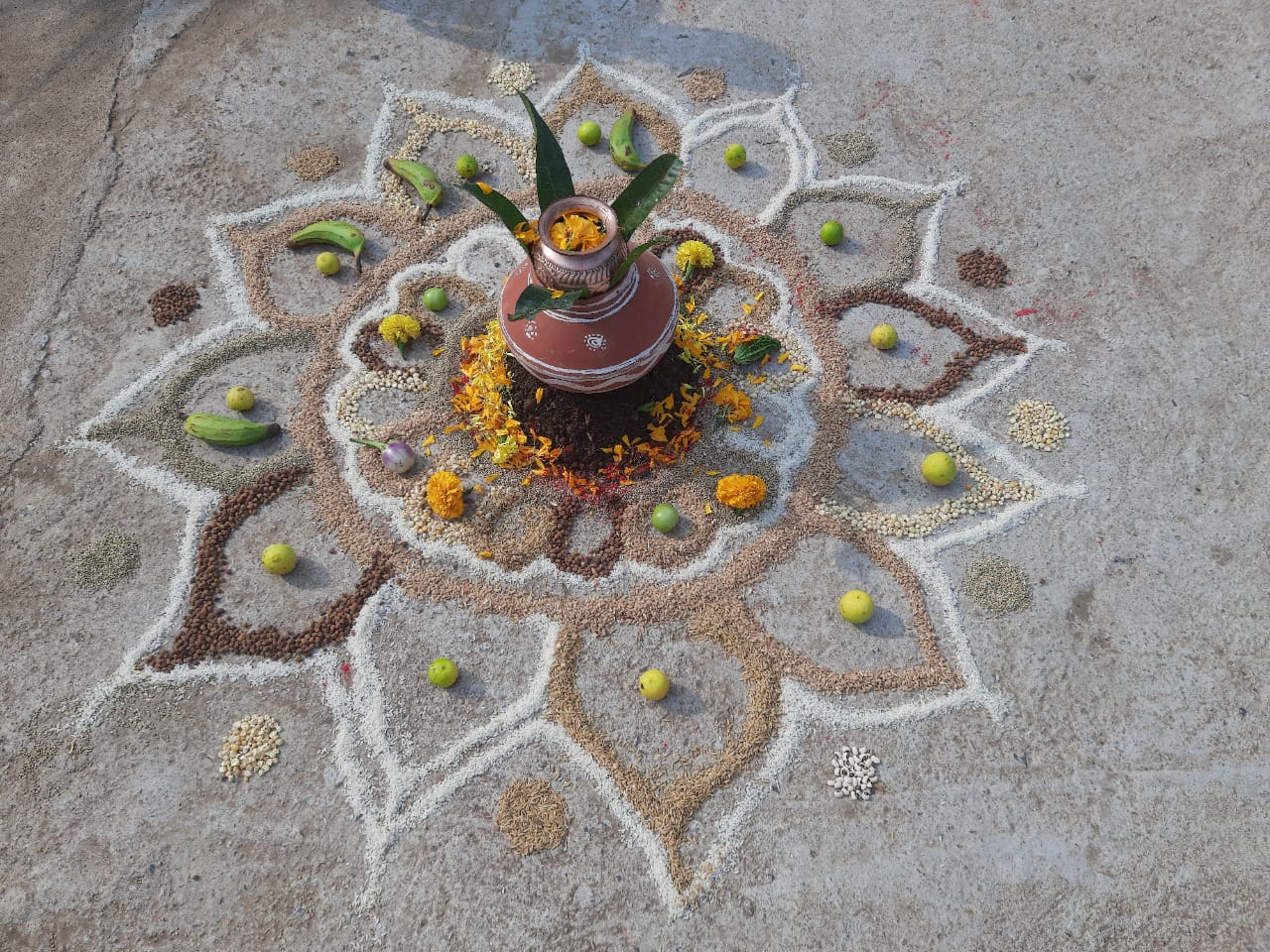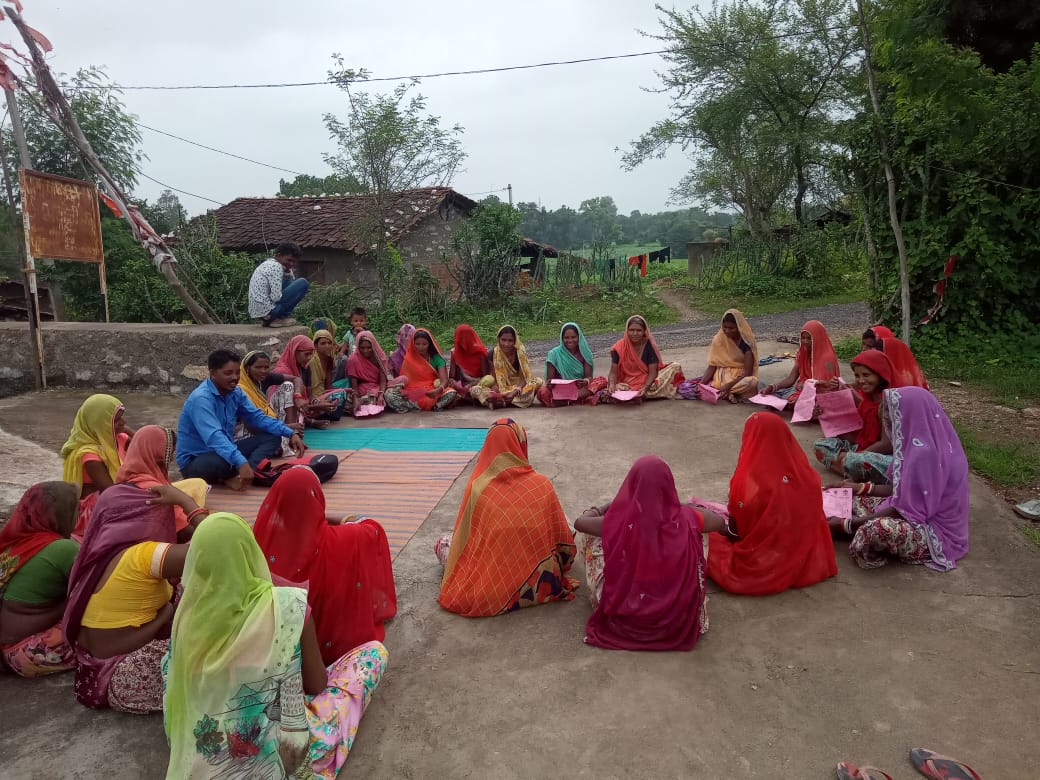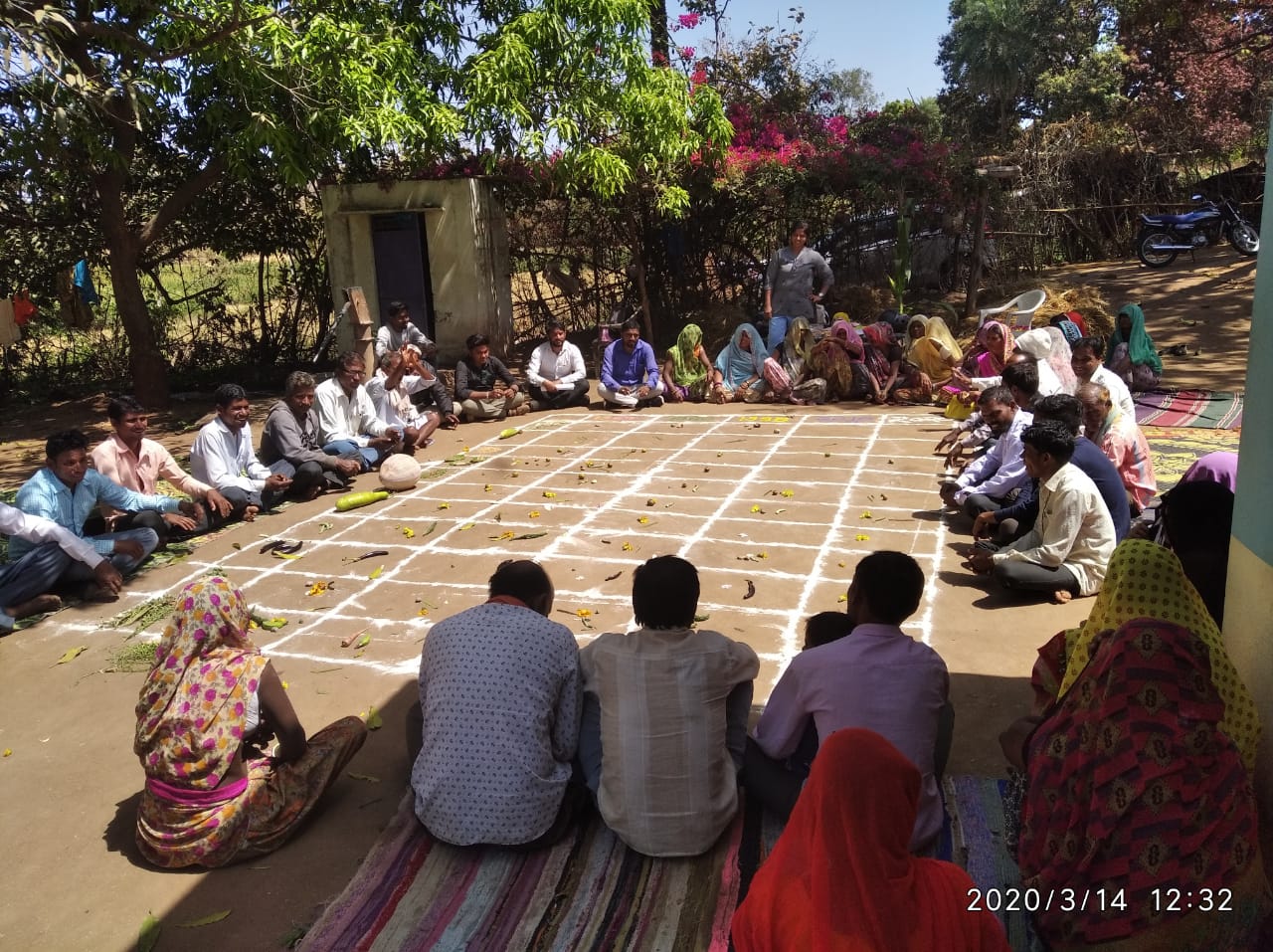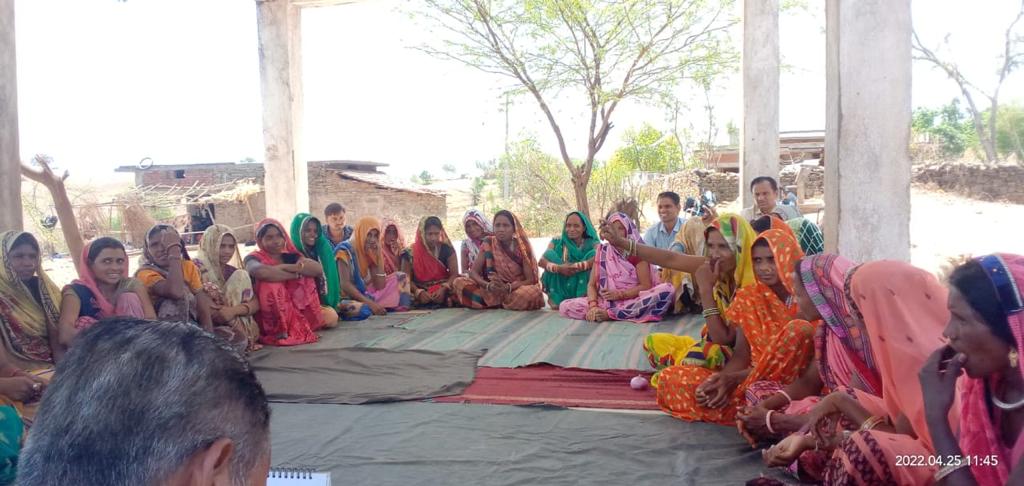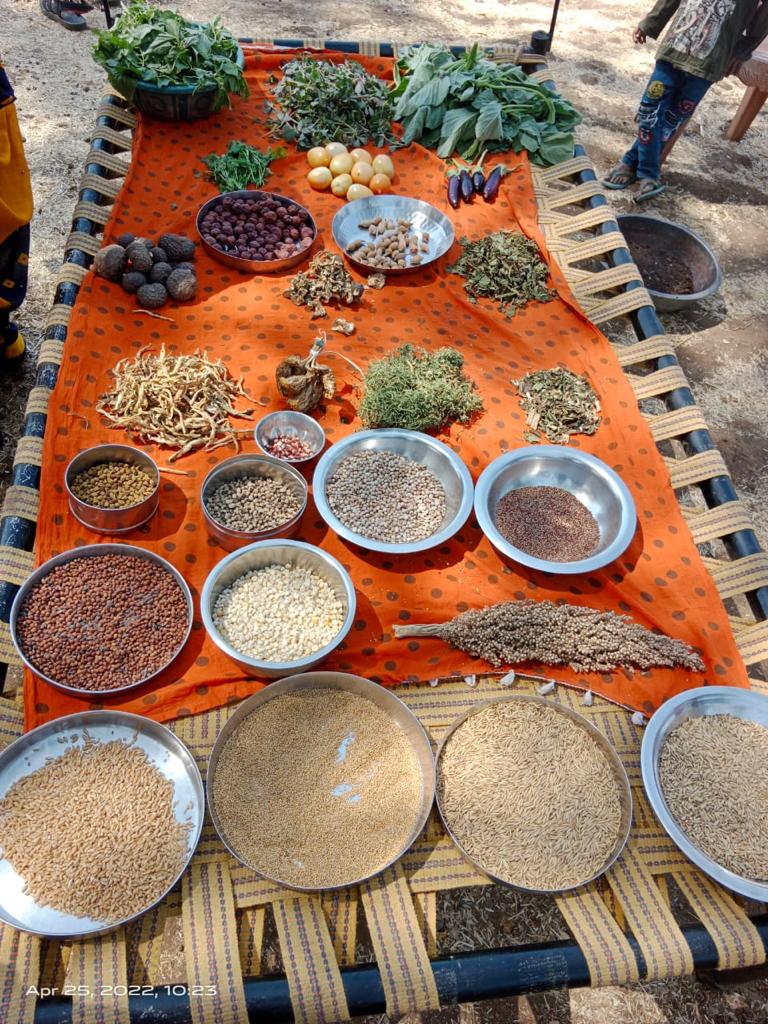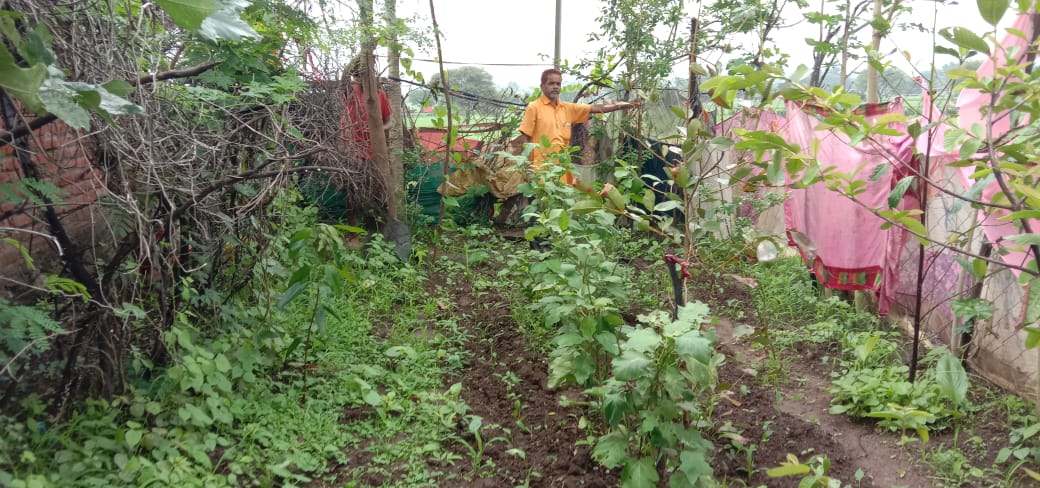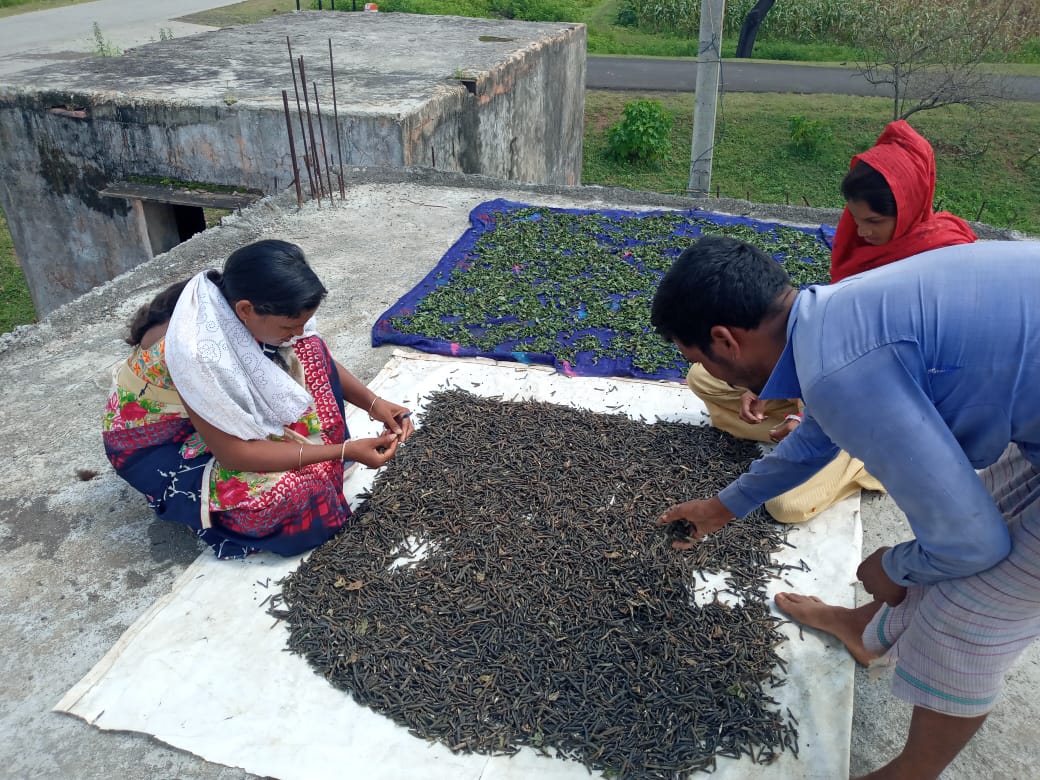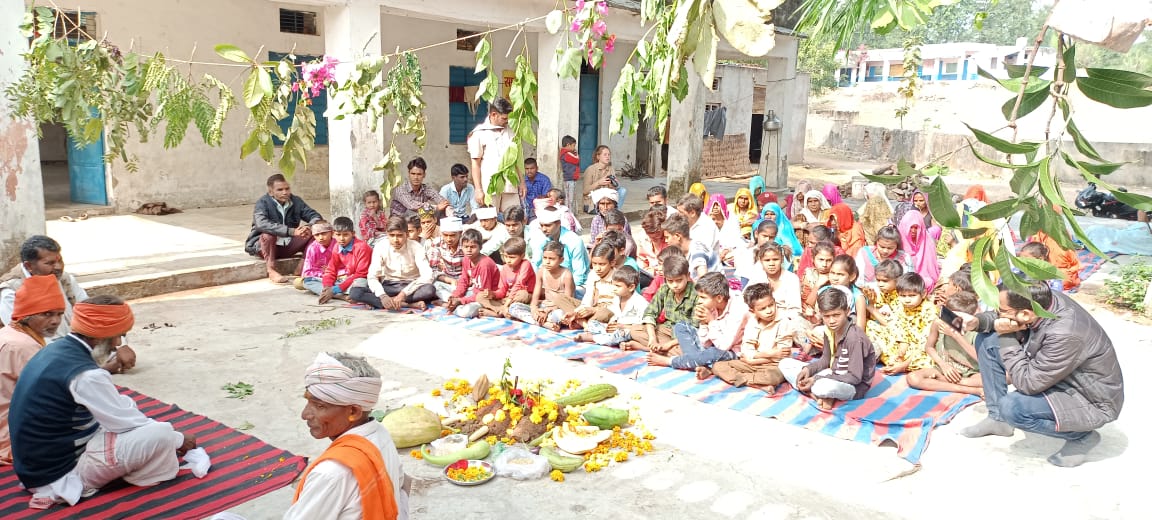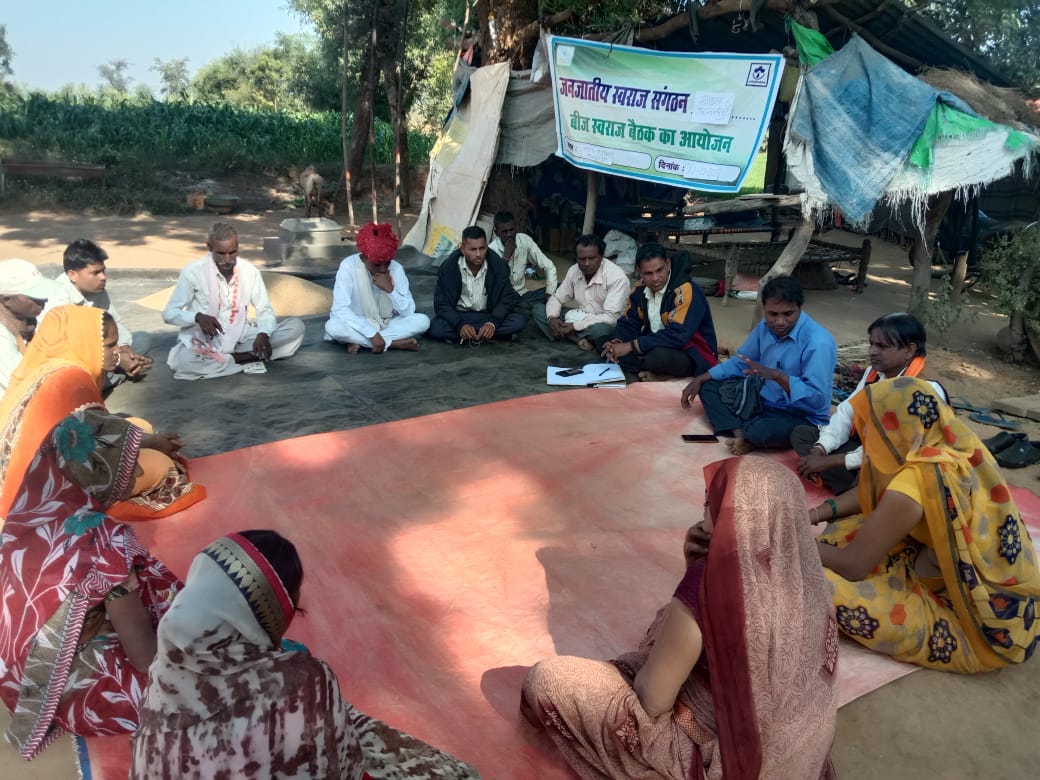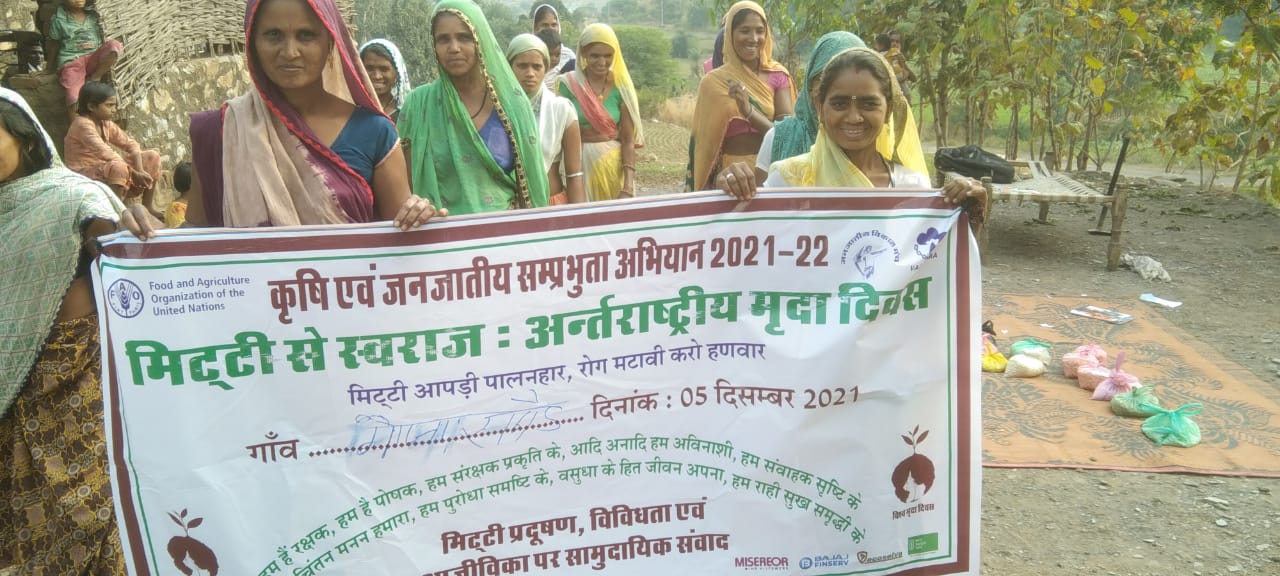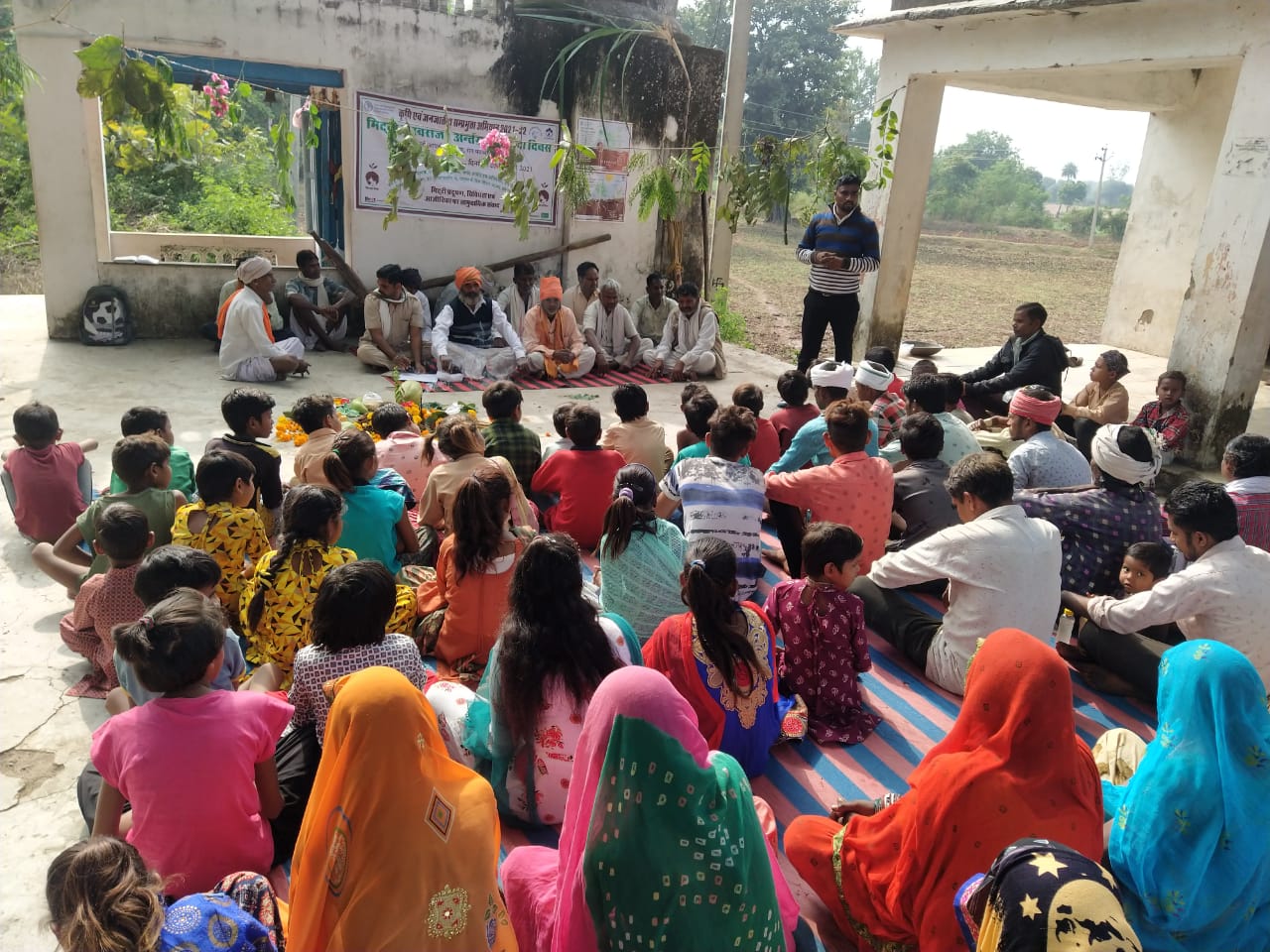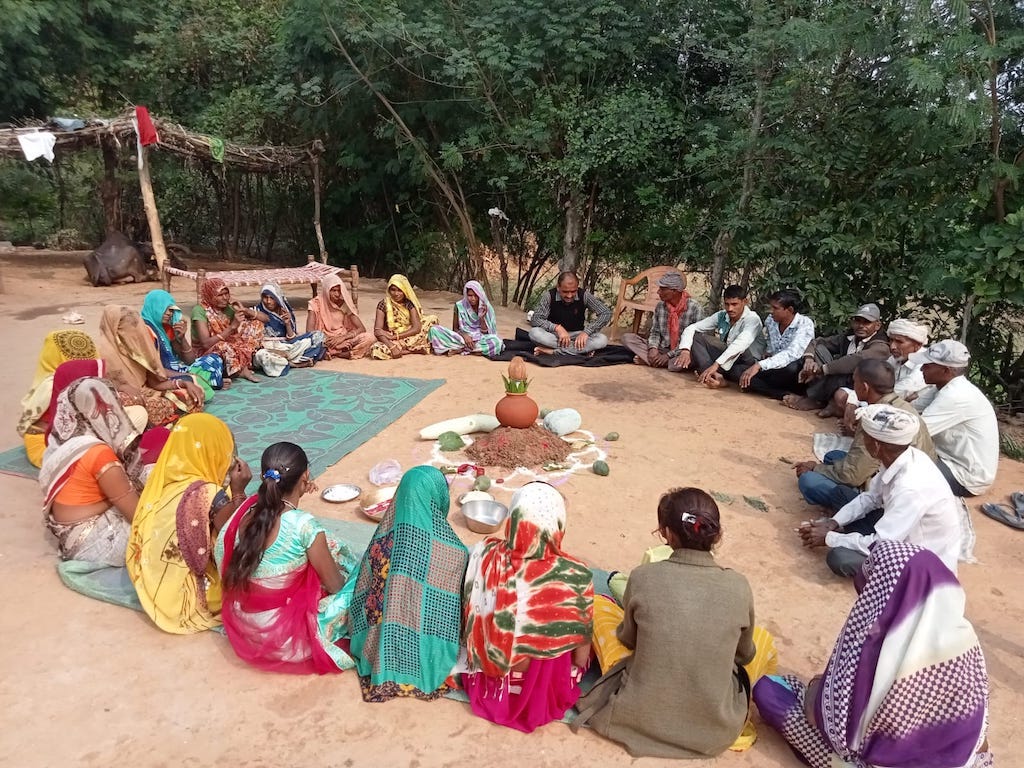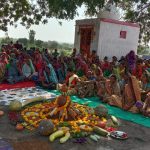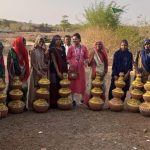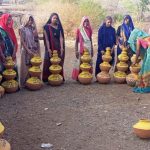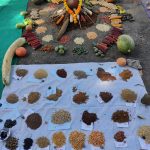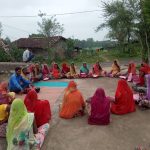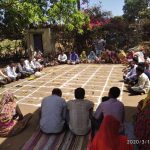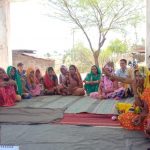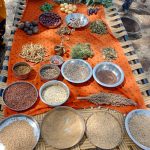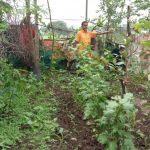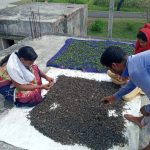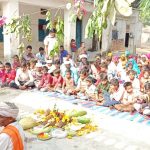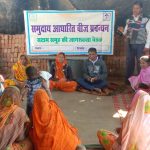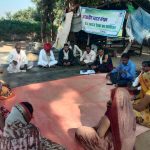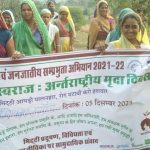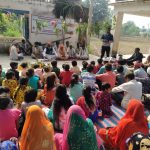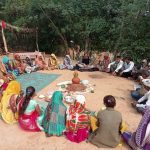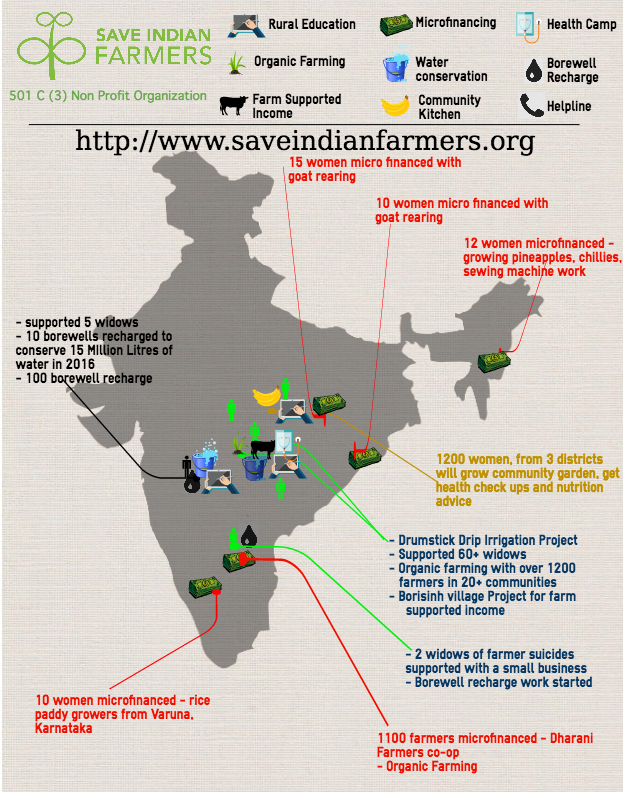Beej Swaraj (First Year)
Region: Banswara, Rajasthan
SIF Partner: Vaagdhara
The project aims at promoting Sustainable Integrated Farming System (SIFS) to address the issues of prevalence of malnutrition among women and children belonging to indigenous community.
Goal
The goal of the proposed 3 year program is “Restore community managed seed system and food diversity of the indigenous tribal families to solve prevalence of malnutrition among them.”
Problems faced by farmers:
- At present in farming, seeds are now controlled by few private companies that produce seeds which bring them higher profit.
- These seed producing companies produce seeds mainly for largely produced crops only, thus community managed system has collapsed gradually.
- Farmers have become dependent on market for their seeds.
- Seeds for various other traditional crops and vegetables are getting extinct, consequently many nutritive vegetables, fruits, and crops are forgotten and cultivation has reduced to 4-5 cereals, 2-3 pulses, 8-10 vegetables and 2-3 fruits.
All the above factors have made farming un-economical venture for small and marginal families. This is also causing migration of farmers in search of work.
SIF – Vaaghdhara Initiatives
Sustainable Integrated Farming System (SIFS) works to restore livelihood resources, knowledge, traditional crops, and best practices so as to help small and marginal tribal families living in hilly and undulating terrain. The focus is to revert degradation of land through rejuvenate the cycle of soil-fertility building, seed-sovereignty, nutrient circularity, etc. Within the SIFS program promoted by VAAGDHARA various components of agronomic best practices, organic farming (vermi-composting, composting, agro-forestry, horticulture, land-erosion control measures, etc. can be attended through individual/group of farmer families.
Objectives
- 40 Women Groups to form a two-layer (Family, group) seed bank
- One Janjatiya Swaraj Sangathan (People’s Organization) to work towards seed-sovereignty within 40 villages.
- Increased crop diversity and production economics for 800 women farmers.
- 400 groupsto be created for the Seed Sovereignty framework
Key Activities Planned:
- Customizing knowledge building material on CMSS, Seed Production, Seed-health, Seed certification etc.
- Preparing seed management tools in dialects
- Exploring status of present farming and seed management system
- Group evolves a bio-diversity map of the group member families.
- Training of farmer’s group on production of quality seed management.
- Crop-season wise seed selection, protection, storage matrix and establishing seed management system.
- Planning and action for registration of unique landraces of vegetables, fruits, species, and other food crops in the area.
- Women Farmers Groups (Saksham Samuha) adopt family, hamlet, and village level components of CMSS.
- For “Seed Sovereign Village”
- JSS level local seed production enterprise
Expected Outcomes
|
Outcome |
1st Year |
2nd Year |
3rd Year |
|
40 villages initiated seed-banks at family and group level. |
Quarterly discussions |
||
|
Janjatiya Swaraj Sangathan-JSS (People’s Organization) laid foundation for community owned seed-sovereignty within 40 villages. |
|||
|
Quality seed material for at least 50 diverse crops are available in forty villages of JSS |
15 Diverse Seeds |
30 diverse seed |
50 diverse seeds |
|
800 women actively involved in production of quality seed of various local crops |
5 varieties |
10 varieties |
20 varieties |
|
40 SS storing and making available quality seeds to other farming families in their villages and relatives. |
10 varieties |
25 varieties |
40 varieties |
|
SS shares learnings with other villagers |
400 groups |
||
|
JSS shares learning with other JSS |
30 JSS |
||
|
Framework of establishing Seed Sovereignty villages available for wider-replication |
Framework |
||
Our Progress so far:
The 40 Groups of 20 women have been identified, build their capacities around the Community seed management system, and have regular meetings to discuss the seed sovereignty in appropriate sessions. They have been learning seed sorting, seed identification according to climatic conditions, and seed storage.
1. Monthly meetings with Saksham Samooh (120 meetings – 2163 members participated)
- Training Sessions related to weeding, hoeing, and biological techniques like Dashparni extract, Neemastra, Brahmastra, fungicides, etc. were conducted in these meetings, making practical demonstrations of pest control, crop storage, etc.
- Impact of Training
-
- 1324 women made ridges in their fields adopting integrated farming methods.
- 869 women learned seed treatment of Kharif crop seeds like Arhar, Urad, and seeds of various vegetables and adopted them in their fields.
- In the same field, women sowed 16 to 17 types of seeds while doing Hangdi farming, from which maize, Urad, 5 to 6 types of vegetables, and 4 to 5 types of seasonal green leafy vegetables were obtained. And the rest of the crops are yet to be harvested in the fields.
- The members of Saksham Samuh demonstrate the learning’s of these sessions with other women of their village and replicate successful models with them.
2. Farmer field school : Training on production of quality seed management.
A series of trainings have been conducted for PGS (Participatory Guarantee System), Saksham Samuh members at village level by establishing Farmer Field School.
Here, they learn the farming techniques from farm preparation to crop harvesting and seed storage for both Kharif and Rabi season. These trainings have been facilitated by the JSS facilitators under the supervision of Technical experts and agricultural scientists. The seed production work has been done in selected farms (agriculture Plot) and produces quality seeds. At present they have 6-7 types of Paddy variety, 5-6 types of minor millets and 12 to 15 types of vegetable seeds.
3. Community seed banks
The agriculture experts Mr. Deepak Sharma and Mr. P. L. Patel have facilitated training for progressive farmers and Swaraj friends on Hangadi Kheti etc. In these trainings, capacity building was done by providing detailed information on crop wise and season wise seed selection, plant protection, methods of storage and community-based seed management methods. Subsequently, three community seed banks have also been constructed at the development block levels by competent groups. More than 100 selected farmers are associated with the above seed bank and they are preserving, managing and doing business of traditional seeds by operating the seed bank at the community level.
4. Biodiversity Campaigns and Community-based biodiversity mapping:
- 40 Biodiversity Campaigns have been organized with the support of 40 women groups with community participation and our project team has facilitated community-based biodiversity mapping of following crops.
-
- Local seed varieties of Paddy (Pathariya, Jeera, Kali Kamod, Motadhan, Motadhan (white), Basmati, Mal Kamod, Pannidhan, and Colombo)
- Three local varieties of Maize (Safedmakka- Doodh Mogar , Pelimakka- Sathi and Gangdi Makka)
- Five local varieties of Wheat (Vajiya, Kalyani, Sonalika, Tukdi and Lok)
- Seven local varieties of Millets (jowar, kuri, batti, hamli, cheena, kodra & bajri)
- Characterization of rare varieties of maize rice and small millets are done.
- Nearly 15 types of maize paddy and millets are sent for registration in the gene bank of rare germplasm.
5. Influencing the policies through networking with the state-level government:
One state-level workshop where 18 members participated to have a detailed discussion with a group of subject experts and come out with a concrete point that needs to be included in the technical briefs for promotion of traditional crops, CMSS, and improvement in Soil Health. also discussed and developed an advocacy strategy for the promotion of traditional crops, establishing CMSS in tribal areas, and Improving Soil Health/Land Degradation.
Two days National Conference on Agriculture and Nutrition Swaraj – ‘Rashtriya Krishi evam Poshan Swaraj Sammelan’ where detailed discussions on strengthening sustainable agriculture programs and policies through the promotion of traditional crop diversity, improving the situation of soil health, water and seed sovereignty, which can help strengthen the economic conditions of small and marginal farmers and consumer awareness.
Three policy briefs on improving crop diversity, seed sovereignty, and improving soil health were prepared and released in the event by the Agriculture Minister of Rajasthan State.
- Policy Brief Seed Sovereignty in Tribal Agriculture
- Policy Brief Improving Soil Health in Tribal Areas
- Policy Brief Conservation & Utilization of Traditional Crops
6. Seed Enterprises: One community managed seed bank has been established by the members of Saksham Samuh of Sera Nangla and Sera wala village. These women have engaged in seed management and provide quality seeds of Kharif and Rabi season and provide seeds to farmers of 17 villages. They sold 7.4 quintle seeds of Minor millets, Maize, Bajra and Paddy seeds.
7. Development of IEC material
- Prepared Community seed management manual: A CMSS manual was prepared detailing the process of seed production and establishing the seed centres.
- A video has been prepared on community managed seed system.
8. Swaraj Samwad Yatra : With the aim to revamp the entire ecosystem and re-establishing the dialogue between mankind and nature, eventually empowering one’s self-esteem through Swaraj – a community march Swaraj Sandesh-Samwad Padyatra was carried out by more than 200 members of the indigenous and vulnerable communities.
Commenced from Banswara district on the occasion of AcharyaVinoba Bhave’s birth anniversary on 11 September, 2022, the yatra culminated at Jaipur, the capital city of Rajasthan on the auspicious occasion of Gandhi Jayanti, 2nd October, 2022.
The 21-day long padyatra (foot march) led by the indigenous and other vulnerable communities of Rajasthan covered a distance of 500 kms covering 4 regions and 7 districts of Rajasthan – Banswara, Pratapgarh, Chittorgarh, Bhilwara, Ajmer, Tonk and Jaipur and was successful in carrying the demands of the community to the district, state and national level, providing the community a platform for solution-based discussions related to policy actions.

